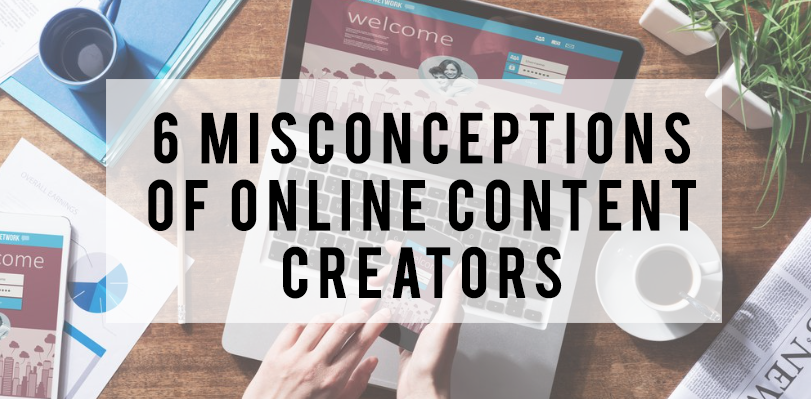1. The Writers Are Glorified Bloggers.
This is the most common accusation that many people with a primarily online presence in the working week face. If it isn’t stigma, it’s the roll of the eyes with a good laugh at your expense. Despite the world being more connected than ever and relationships—for better or worse—holding on to that next tweet, that ding of a Whatsapp message or an e-mail, the idea of the working space being changed to that of a desk in your home hasn’t hit the masses with quite as much welcome as one would think.
In Malaysia, a nation where a mandatory component of the task list is the 6–8 am crawl to the office and a 4–7 pm trek home with a bad mood and the occasional road rage to accompany expletives on the railway system, it’s felt more than ever. You can be sitting at a dinner table with a healthy (relatively, anyway) bank account and the next thing that you have to answer is, why you don’t have a job? Why do you stay at home all the time?
“Why can’t you be like Auntie Wei’s son who has a job in marketing? You know he might get promotion soon?” is a favorite for many.
It is a back and forth until someone at the table likens your work with that of a Facebook post.
You are not a Facebook Poster. You are the one whose articles (that are very much not on Facebook, thank you very much) are shared by those who wish to direct more attention to their reads. You scrounge through mounds and mounds of information that would catch the attention and whirr the gears of your audience.
The responsibilities are different—and it has to be made so for others looking down on you as just another person fishing for likes and hearts on social media.
2. Publishing Online Must Be Much Easier Than Traditional Print.

Newspapers have a general safety net for their writers—the nature of a newspaper’s article is that the moderation between the editorial and the article acts as a sort of barrier between the one who wrote it and the one who read it. Physical newspapers pick the most worksafe opinions and put them in an Our Readers section. There is some praise, there is some negativity, but it’s all very moderated.
One only needs to go to an IGN page on a game review and be prepared to see the bombardment of obscenities that you don’t think any person would dare utter in real life in the comments section.
There is no such protection online. People expecting the same sort of treatment from regular publication are almost overwhelmed by the derogatory remarks some of the audience are capable of, unfiltered. You will have to deal with this—most people say ignore and let them talk, but how you respond to the accusations and the vitriol is all on you… at least until the content manager steps in and asks: “Why?”
More often than not, you’re in the direct line of fire of people that hold your views and ideas in contempt. The difference between a newspaper column’s author and an online article’s author is that the moment you have let your article out there, it’s a free for all. There are those that may share your views and hit a share or a heart, but there are those that will be leaving hateful, sometimes charged comments in disagreement or those that don’t even wish to bother with the pleasantries.
You might even feel underappreciated for all your work, which leads me to my next point.
Also Read: 10 Danger Signs For UX Designers To Look Out For When Practices Aren’t As Effective
3. There’re Lots Of Perks And Glamour.

I don’t need to explain who Lois Lane is—intrepid reporter, investigative journalist and probably the template for every modern, independent woman—and just what she means beyond being Superman’s girlfriend. She has written dozens upon dozens of exposés. You may remember some of them:
SUPERMAN: DEAD?
LEX LUTHOR EXPOSED
I SPENT THE NIGHT WITH SUPERMAN
The smiling face of Ms Lane as she hoists the Pulitzer seems to be one of the enduring images of her, bagging that big story and making it big with an article that billions—if not millions—would recognise.
Instead, you’re here checking whether or not the percentage of start-up companies would last beyond the initial trendy phase is feasible enough to encourage newcomers. You’re double-checking with taxi earning spikes from years before to put a click-worthy spin on your next feature.
You’re doing this all in the hopes that you’re going to get that snag, that big kahuna, that white whale—that one number that’ll boost you up higher than you would dare dream. The dream, of course, being shared upwards of thousands and making a name for yourself as a featured chronicler.
The Pulitzer takes a different, less glamorous form here—hearts and hits, shares and likes, and your average writer is lying if he or she says an extra like or a Facebook share doesn’t do it for them.
But what about the perks? What about being showered with favour and free gifts and invites to events? Sure, there’re some, but honestly, after a while, it becomes all part of work. And if you’re getting gifts, it’s likely they’re going to expect something down the line.
4. They Have A Better Gig Than Most Writers.

Spell-check, fact-check, you still do these things. You’re not out there to throw caution to the wind only to post how your boyfriend dumped you and your girlfriend wouldn’t go out with you. Regardless of your audience, your topic or your own opinions, you still have to act like a, wait for it… professional.
An honest-to-goodness professional. Like those reporters sitting patiently with the Ministers and CEOs for their segments, you still have to do this. It doesn’t matter if you’re wearing a saree or a pair of shorts and a tank top behind the computer screen. You are still doing the same things that you would otherwise be doing at a million-reader newspaper publication.
You have a boss. You have to say things in specific ways so as to not upset people. You have to make sure someone hasn’t already published or are proposing to publish whatever it is you’re covering. The nature of the net and its pace takes its toll on you just as much as any mid-day lunch rush and back to the office.
It’s a dynamic world where you’re looking out for yourself, just like you are on that day job!
5. It’s All About Reaching A Huge Audience Easily.

The internet is a place of unparalleled opportunity and reach, after all. One viral article could be read by millions. The writers of the past would have committed murder for such opportunities open to us today.
It may amaze you to find out that suddenly you have a neo-liberal anarcho-capitalistic audience member that identifies that you are very much wrong in your view and wants you to take it back like you would an insult to their mother.
Never heard of one before? That’s okay, I made it up.
It may be strange for you, but you are going to encounter many, many ideals you probably haven’t heard of and who want you on their side, regardless of whether or not your article, in context, applies to their sensibilities. To echo the sentiment of the lack of a safety net, you’re going to be up against these people and your beliefs and your views will be challenged. You will not have someone upstairs that tells you to ignore them.
You will have people accuse you of being a fascistic One Percenter in disguise, looking to overthrow sensibilities when all you wrote about was “Why The Nintendo 3DS XL Beats The old Nintendo 3DS”; you will have comments upon comments with people identifying themselves as one movement or another and mention that your article doesn’t fit in with the narrative they have come to expect.
After all, what would the Proto-Marxist Super-Feminists say?
Maybe you’ll suddenly sympathise with some views, even. It’s like dealing with people around a coffee table instead of dropping off an impersonal note, which brings us to the next argument.
6. Get The Facts Right And You’re Golden.

This is a far stretch for many, but the nature of consumption for the 21st Century hive is such that people are more willing to take an interesting title (the bait) than actually wanting to know the time, date and place. In many ways, the online author is more of a storyteller than a minute-by-minute reporter as they have to try to commit themselves to keeping the clicks coming, to keep the attention on them. This comes at the cost of fact for engagement to keep their attentions.
This isn’t like a newspaper where the whole lot is bought and the detachment ends.
It’s more like a conversation where you want to keep the juicy details and teasing spoilers in to keep them scrolling and going like a good story. You’re not reporting as much as you are capturing their attention and curiosity. To this point there are many detractors, of course—some reporters are going to say that the truth matters and nothing else does.
You’re not lying, of course. You just want the hits more.
But would you rather weave it have an audience, or would you rather tell them fact-for-fact? That is a discussion for another day.
So there you have it. The 6 misconceptions of online content production. May the Force be with you, aspirants and readers.
This article was written and contributed by Azran Azhari Arshad.
Also Read: This 24-Year Old M’sian Was Told She Was Too Young To Publish, So She Made Her Own Company Instead
Feature Image Credit: midliferswebbusiness.com












